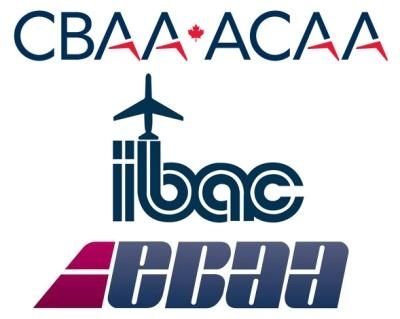Cite Increasing Shared Frustration Over The Schemes 'Many Flaws'
On the occasion of CBAA 2012, Canada’s leading event for business aviation, several prominent national Business Aviation Associations and their international representative body, IBAC, gathered to review their joint positions on the European Emissions Trading System (EU ETS). Fabio Gamba, CEO of the European Business Aviation Association (EBAA), set out the European perspective, emphasizing that he shared the audience’s frustration over the scheme’s many flaws.

These shortcomings include the discriminatory treatment of business aviation, not only in the distinction made in the Directive between commercial and non-commercial operators and how the de minimis rule is applied, but also in the system’s cost ineffectiveness and its focus on punishing CO2 emitters instead of encouraging their efforts dedicated to improving the industry’s carbon footprint. As for the scheme itself, Gamba stressed that its timing couldn’t be worse and should have at least been coordinated with EU Member States – several of which continue to tax aviation also for environmentally-based reasons.
“There’s no denying that aviation emissions will grow over time despite the sector’s constant technological and operational improvements and its formal long-term commitment to reducing the impact of aviation on the environment. And although business aviation emits less than 2% of air transport emissions – and less than .04% of total man made emissions - we confirm our sector's role in helping to combat global warming,” Gamba said. “Indeed we have already called for and recognised the role of interim global market-based measures to foster the fulfilment of our three long-term targets, namely 1) carbon-neutral growth by 2020, 2) improvement in fuel efficiency of an average 2%/year until 2020, and 3) an absolute reduction of 50% (based on 2005) of our CO2 emissions. However, we believe the time has now come to define what these measures should be.”
Don Spruston, Director General of IBAC, also cautioned that resistance to the EU ETS could lead to retaliation which would harm all parties. “We understand the frustration that unilateralism and badly-crafted legislation can generate,” he added, “but we also note, importantly, that the European Commission has agreed to abandon its scheme if and when a global agreement on an aviation climate change program is sealed. This is an opportunity we want to seize.”
He therefore called upon the international business aviation community to rally behind the worldwide aviation effort to develop an alternate, global, market-based measure to the EU ETS. Sam Barone, President & CEO of CBAA, noted: “We need to devote our resources to finding an international agreement that has the full support of the industry worldwide. Today various international bodies are already reflecting on how best to achieve it. We commend their efforts, but we must take a more active role in their work.”
EBAA and their colleague business aviation associations, working with IBAC, are therefore calling for the development of such a global agreement under the leadership of the International Civil Aviation Organization (ICAO). Barone concluded that the EU ETS had triggered discussions at a global level which should provide a much needed push to reach a global solution under ICAO. “We certainly don’t support the EU ETS for all the reasons mentioned above. And we will join our colleagues in pushing for a fairer, international, market-based measure that helps accommodate our ambitious environmental goals in the short- to mid-term. Indeed, we warmly welcome the constructive debate generated at our 2012 Convention and are delighted to offer further facilitation from our offices in the home country of ICAO.”
 ANN's Daily Aero-Linx (05.06.25)
ANN's Daily Aero-Linx (05.06.25) ANN's Daily Aero-Term (05.06.25): Ultrahigh Frequency (UHF)
ANN's Daily Aero-Term (05.06.25): Ultrahigh Frequency (UHF) ANN FAQ: Q&A 101
ANN FAQ: Q&A 101 Classic Aero-TV: Virtual Reality Painting--PPG Leverages Technology for Training
Classic Aero-TV: Virtual Reality Painting--PPG Leverages Technology for Training Airborne 05.02.25: Joby Crewed Milestone, Diamond Club, Canadian Pilot Insurance
Airborne 05.02.25: Joby Crewed Milestone, Diamond Club, Canadian Pilot Insurance



